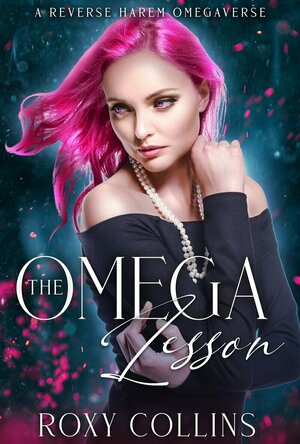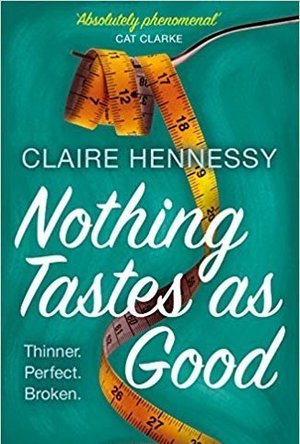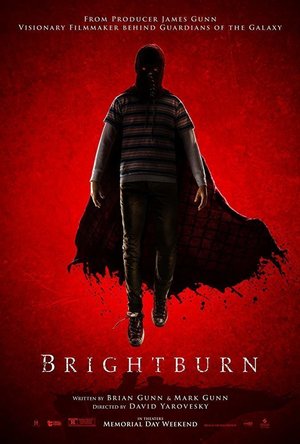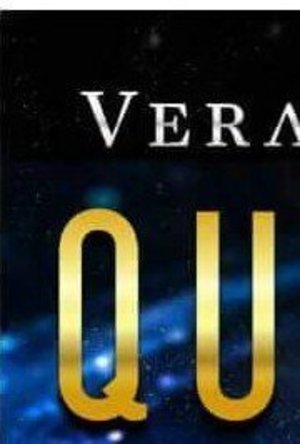
Qualify (The Atlantis Grail, #1)
Book
You have two options. You die, or you Qualify. The year is 2047. An extinction-level asteroid is...
Science Fiction Sci-fi YA Young Adult Atlantis
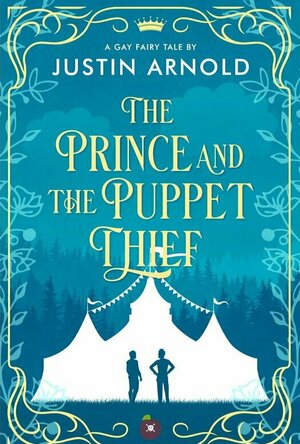
The Prince And The Puppet Thief
Book
Welcome to the kingdom where princes kiss thieves, princesses dance with their handmaids at...
Merissa (13782 KP) rated The Omega Lesson (Billionaires in Heat #2) in Books
Aug 10, 2023
Lexi is up against the odds in pretty much everything - working in an Old Boys' school, being abandoned by her family, and having an ex who is a complete jerk. Mattie is the first one we meet and he is a couple of years younger than Lexi. I loved these two! They were so hot but also so caring and protective of each other. One by one, the others appear and we learn more about their past (and how Maddie was involved.) They all suffered and dealt with it in their own ways, but it's only when Lexi appears that they pull together. And I also loved the description they gave her - their North Star.
I thoroughly enjoyed book one and love the world it is set in. This one, I enjoyed more but I still can't quite push to 5 stars. I would have liked a little more from Travis and also a little more of Bree and the interactions with the rest of the pack.
I look forward to reading more in this series and finding out more about Finn Visser! Absolutely recommended by me.
** same worded review will appear elsewhere **
* A copy of this book was provided to me with no requirements for a review. I voluntarily read this book; the comments here are my honest opinion. *
Merissa
Archaeolibrarian - I Dig Good Books!
Aug 10, 2023
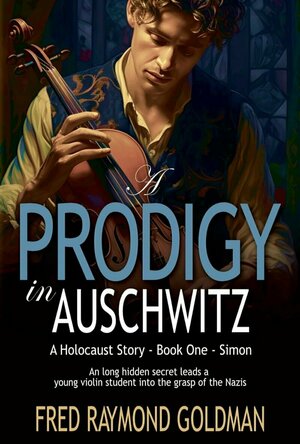
A Prodigy in Auschwitz: Simon
Book
When Nazi Germany troops enter Krakow, Poland on September 2, 1939, fourteen-year-old Simon Baron...
Historical Fiction WWII Auschwitz Jewish Survivor Story
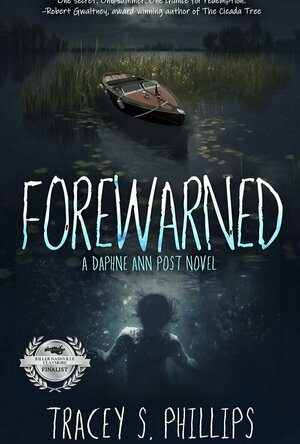
Forewarned: A Daphne Ann Post Novel
Book
For 15-year-old Daphne Ann Post, the summer of 1976 at Lake Carlson should be filled with new...
Young Adult Supernatural Mystery Suspense
Eleanor Luhar (47 KP) rated Nothing Tastes as Good in Books
Jun 24, 2019
So Annabel is dead. I'm studying The Lovely Bones at school so the whole beyond-death narration isn't that special to me now. But Hennessy does it pretty differently to Sebold.
We don't know much about Annabel, not at first. But we begin to learn about her while she helps her assigned "soul-in-need" - The Boss (definitely not God) has promised her a final communication with her family if she helps Julia. And this looks easy, at first - Julia is from Annabel's old school, with a loving family and good grades. Everything is fine, except she's fat. Annabel thinks this should be easy - after all, she's an expert in weight loss. She lost weight until she died.
But Annabel soon finds out that Julia's issues are a whole lot more complex than her weight. At first, losing weight helps. But then her old scars come back to haunt her, and Annabel realises that maybe losing weight isn't going to fix all her problems.
Aside from the obvious issue, this book does talk about a lot of important topics. It covers friendships and relationships, like most YA novels do, but it also combats ideas on feminism, affairs with older men, and people all having their own hidden demons.
At first, I wasn't keen on Annabel. I wanted to like her - I felt I should, because I could relate to her story so much. But she was a bitch. She wanted other people to be like her, and rather than encouraging recovery and health and happiness, she shared tipped on weight loss. It really did hurt to read. Her ideas on "perfection" and being weak for eating just really hit a nerve for me. Not because it was wrong (though I'd never encourage an eating disorder in someone else), but because it's exactly how I'd think about myself. Her behaviours, her worries, her anger - they were so real.
But Annabel, despite being dead, grows alongside Julia. Yes, she tells Julia to starve herself and run on an empty stomach and hate herself, but eventually she starts to feel for her. She wants Julia to combat her issues, to actually be happy. And she realises, despite having been so upset with her old friends for recovering, that maybe she wasted her life. Maybe she could have been something more, rather than striving to be less.
I found this really emotional. Annabel's love for her sister, the sister she neglected for years while she was focused on her goals, and the future she cut short. The way Julia's life changed when her passion for writing and journalism was overtaken by her obsession with food, calories, exercise. It's so real and so sad. And the ending isn't "happily ever after" - Annabel's still dead, Julia's in counselling - but it's real. It gives hope that things can change, that Julia can really achieve happiness.
At first, I didn't like this that much. I know Annabel is just a character, but I just didn't like her. She was one of those girls that makes anorexia sound like a choice, a lifestyle, and I hated that. But later she realises she is sick, and I actually felt sorry for her. I was sorry that she had been brainwashed by her illness into believing she was doing what was right.
The only reason I'm giving just 4.5 stars to this book is because Annabel was a bitch. Yes, she is a character, and yes, she grows considerably throughout the novel, but her encouragement of EDs just drove me insane. Personal pet peeve, I guess.
Kristy H (1252 KP) rated The Precious One in Books
Feb 13, 2018
After Wilson suffers a heart attack, he summons for Taisy and her twin, Marcus. Only Taisy -- still longing for the fatherly approval she could never attain-- comes. There she learns that Wilson wants her to write a book about his scholarly life. As she embarks on that quest, she learns more than she bargained for about her father, her halfsister, her stepmother, and herself.
Here's the thing about this book. Much of it is incredibly implausible. It's kind of insanely implausible. There's a line where Willow, who is truly this pure, kind child of 16, after being isolated her entire life by her father, is talking to a school friend and asking how anyone could possibly be so nice. That's how I feel about half the characters in the book. Willow, said friend, Luka, Taisy... we also meet Taisy's high school boyfriend, Ben, whom she abandoned when the Wilson craziness happiness. Even he's amazingly nice.
They're all so kind and amazing and introspective. Well, except for Wilson, who is a completely horrible person: even after you learn about his past, he's just an ass.
But it doesn't matter if the characters seem a little too nice, or things happen a little to easily. There's definitely adversity, and poor Willow is certainly put through the wringer in a short period in this book. You find yourself rooting for her (she's just so nice, dammit) and Taisy (she's just so feisty and kind, dammit!) and for their relationship(s). There's also a beautiful moment, where things sort of come full circle, and you find yourself amazed about de los Santos' writing all over again.
It's a pretty book, and a romantic book, and a slightly improbable book, but still a good read nonetheless. Rated 4 stars here, probably truly a 3.5 rating (there's a little de los Santos nostalgia that goes into that rating).
Note: I received a free ebook copy of this novel from Edelweiss in return for a honest review.
Andy K (10823 KP) rated Brightburn (2019) in Movies
Oct 19, 2019
The classic "Superman" story is turned on its head in a way when a spaceship falls to Earth with a baby within. The young couple who live on a farm decide to adopt the infant as their own. Now 12 years old, young Brandon starts to feel differently. He is compelled to seek out his mother ship now locked inside the depths of a barn where he seems to receive unknown demonic instruction.
Things aren't going well at school either. He injures a young girl's hand after an incident where she fails to catch his fall while playing a game of trust during their physical education class. Afterwards, the girl's mother has some distasteful words to say about Brandon which he overhears and his lust for retribution emerges.
The lack of specific direction or even which genre this movie wanted to inhabit is its biggest flaw (which means bad screenplay). At some points it was underdog outcast teen drama and at others darkened house jump scare or even some scenes involving gruesome gory horror. The first half of the short 90 minutes was devoted to establishing Brandon's status at school and with his family and wasn't terribly interesting while the 2nd half was just the standard gruesome kill after gruesome kill which were cool I guess, but won't stay with me.
Going in, I really thought the film was going to be more epic and concentrate on his emerge and then quest for world domination (which was only shown during the end credits) which I think would have been way more interesting, similar to Chronicle which was done in a much more interesting way than this.
Maybe they were hoping for huge success so the 2nd film could've explained more of the origin story. I guess I don't mind that nothing as to the source of the spaceship or the creatures within were explained. I don't need every plot point spoon fed to me, but it was a wasted opportunity to create a new completely original super villain universe which they could've drawn from indefinitely.
Is Brightburn supposed to be an antihero? Are you supposed to root for him to avenge the wrongs he has had in his ife or are you simply supposed to cringe like you would when Jason or Michael hack into a sex crazed teenager?
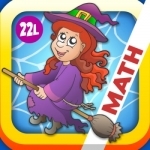
Adventure Basic School Math · Math Drills Challenge and Halloween Math Bingo Learning Games (Numbers, Addition, Subtraction, Multiplication and Division) for Kids: Preschool, Kindergarten, Grade 1, 2, 3 and 4 by Abby Monkey®
Education and Games
App
33 % OFF SALE - TODAY: December 22-31, 2015 * Developed by an award-winning education studio,...
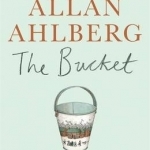
The Bucket: Memories of an Inattentive Childhood
Book
The Bucket by Allan Ahlberg - the enthralling childhood story one of Britain's best-loved children's...
